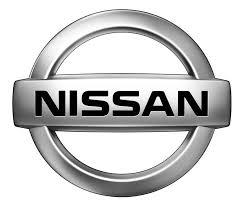Titan 2WD V8-5.6L (VK56) (2004)
/Page-354001.png)
Alignment: Service and Repair
PRELIMINARY INSPECTION
WARNING: Always adjust the alignment with the vehicle on a flat surface.
NOTE: If alignment is out of specification, inspect and replace any damaged or worn rear suspension parts before making any adjustments.
1. Check and adjust the wheel alignment with the vehicle under unladen conditions. "Unladen conditions" means that the fuel, coolant, and lubricant
are full; and that the spare tire, jack, hand tools and mats are in their designated positions.
2. Check the tires for incorrect air pressure and excessive wear
3. Check the wheels for run out and damage.
4. Check the wheel bearing axial end play.
5. Check the shock absorbers for leaks or damage.
6. Check each mounting point of the suspension components for any excessive looseness or damage.
7. Check each link, arm, and the rear suspension member for any damage.
8. Check the vehicle height.
-
For air leveling vehicles, verify the level using Consult-II memory register 1103 and set to 0 ± 10 mm (0 ± 0.39 inches) as necessary.
CAMBER AND CASTER
1. Measure camber and caster of both the right and left wheels with a suitable alignment gauge and adjust as necessary to specification.
2. If outside of the specified value, adjust camber and caster using the adjusting bolts in the lower links.
CAUTION: After adjusting the camber then check the toe-in.
NOTE: Camber changes about 3' (0.11°) minutes with each graduation of one adjusting bolt. Refer to table for examples of lower link adjusting
bolt effect on camber and caster.
